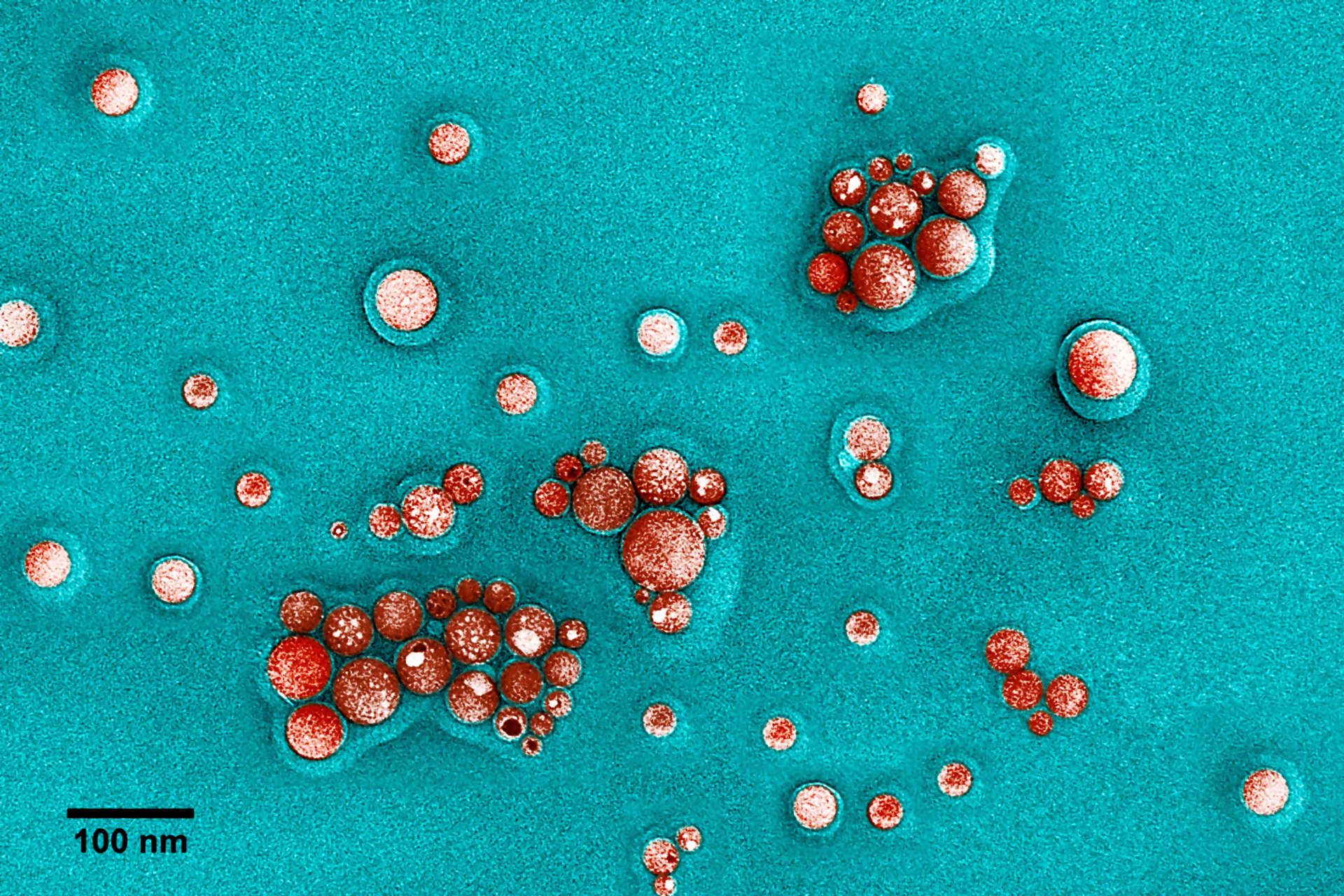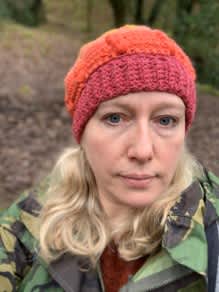This month’s ATOM Festival of Science and Technology will see Abingdon flooded with fascinating events and speakers covering everything from the climate crisis to hedgehogs. One such talk, ‘Why Small is Beautiful’ will be given by Dr Annela Seddon, director of the Bristol Centre for Functional Nanomaterials. Her work focuses on structures no larger than 100 billionths of a metre, and the weird, wonderful and potentially revolutionary properties that emerge at this scale. We caught up with her to discuss her work, the value of failure, and the progress of girls in STEM.
What was your path into a career in science?
I was always the kid who was interested in how things worked and I was really lucky that I had parents who, despite not being scientists themselves, really encouraged me. From when I was very small my dad would explain to me how engines worked and planes flew. We built a kit car together when I was about 11 and he explained every single part of it – I just couldn’t get enough. I think I was just really fortunate that I had support and that my curiosity was encouraged. I ended up doing a chemistry degree at Edinburgh University and then onto a PhD in Bristol.
What’s so interesting about the nanoscale?
We’re very used to looking at objects around us on the macroscopic scale, and have an innate understanding about how they behave. I know that if I pick something up and drop it, it’ll fall under gravity; we have a set of rules and we understand how they apply. What becomes really interesting is that as things get smaller, the normal rules we understand start to break down. It doesn’t get quite as weird as quantum mechanics, but it starts to be influenced by the properties of quantum mechanics and how things behave on an atomic scale. So we have this transitional region between things being purely quantum and things being macroscopic. A lot of it is governed by the fact that as we make things smaller, the amount of material on the surface is proportionally greater than the material in the volume, so we have a bigger surface area-to-volume ratio. This controls a lot of properties on the nanoscale because interesting reactions happen on the surface first, so if we’ve got more surface, we’ve got more reactions. There are all sorts of materials that have interesting properties – how colour behaves, mechanical strength, electrical conductivity – these are all very different at the nanoscale.
What is an example of something we have because of nanoscience?
One of the major ones is sun cream. When you go skiing and apply that white sticky paste – or total sunblock – that’s titanium dioxide, or TiO2. TiO2 is awesome because it entirely reflects UV light. The problem is that it’s a white sticky paste and no one wants to cover themselves in paste. So they took the TiO2 and made it into nanoparticles and then mixed it with sun cream. The interesting thing about TiO2 is when it gets to nanoparticle size it’s transparent but still reflects UV light. So now we have a product that can be rubbed onto the skin that has the same effect as covering yourself in total sunblock.
What do you think will be the major breakthrough areas for nanotechnology in the future?
The first is healthcare and the miniaturisation of things like sensor technology and drug delivery systems based on nanocapsules – these will have the power to be revolutionary. Also I’m very interested in what happens at the interface of things like 3D printing and nanomaterials – so can you take the properties of a nanomaterial, and through 3D printing effect a change that’s macroscopic? The other is in energy and greener alternatives. The silicon solar cell has done us very well but it’s an imperfect technology. There are lots of new materials people are investigating, all of which are on the nanoscale and may either complement or supersede current photovoltaic technologies.
Based on your experience of going into schools, how would you rate progress in getting more girls into STEM subjects?
I think there are more interventions and that people are more aware of it, but the percentage of, for example, female professors in STEM subjects hasn’t changed in 20 years, so whatever we’re doing it’s not working. I don’t think that’s for any malicious reasons, I think it’s just a big problem. The number of girls taking A-level physics has held steady at around 20% for as long as I can remember. I don’t think it’s necessarily about people consciously putting girls off, but there’s something in the way we teach that’s maybe not speaking to girls as much. There is still an idea of boys’ subjects and girls’ subjects, but I think that’s not as prevalent – certainly when I was at school that was a big thing. I was constantly mocked for doing boys’ subjects – physics, metalwork, woodwork – I was told, “Do you want to be in the class with all the boys, is that why?” I was thinking ‘Good God no!’ I just liked the subjects. What I find is something happens around about year 7 or 8. I go into schools at all ages and when I talk to year sixes they all love science – it’s like Harry Potter, it’s alchemy, it’s like magic – and they talk about it in this wonderful expressive way. Then somehow we have to teach them the fundamentals and the underlying maths. At that point something happens and we switch them off. I don’t think that’s the teacher’s fault, I think it’s something inherent in our curriculums which are designed for children to be able to pass exams. That doesn’t inspire children to see what the possibilities of science are.
Does that say more about how we think about schooling in general?
There’s something maybe in the way we approach education – and I think this is true in universities to a degree as well – that we’re scared of teaching kids about failing. When I get project students come to work in my lab, they’re all very bothered about getting the right answer. The first thing I tell them is that I don’t know the answer, that’s why we’re doing the experiment. The second thing is, if it doesn’t work, we’ve learnt something. If everything worked first time, science would be really boring; it’s when it doesn’t work that I find it really interesting. One of my favourite papers I’ve ever written was on a piece of work I did which only came about because I connected the wrong part of a syringe pump up to a sample chamber and flooded it with water. It wasn’t what I was trying to do, but I got a really cool result out of it and decided I’d figure out why. It’s actually something we’ve ended up going on and publishing loads on, all because I made a mistake at 2am when I was tired.
So science has value regardless of how big one result might look at the time.
I’m a big believer that there is as much to be valued in incremental science as there is in breakthrough science, because breakthroughs don’t happen out of nowhere, or very rarely they do. Somebody encapsulated it well when they said that nobody thought much about the invention of the vacuum pump, but now we have the electron microscope. The electron microscope could not exist without the vacuum pump, something which didn’t seem like a particularly exciting thing to invent, but was an enabling technology. I don’t think we value that enough.
Dr Seddon will give her talk at Amey Theatre on 21 March.
atomfestival.org.uk










